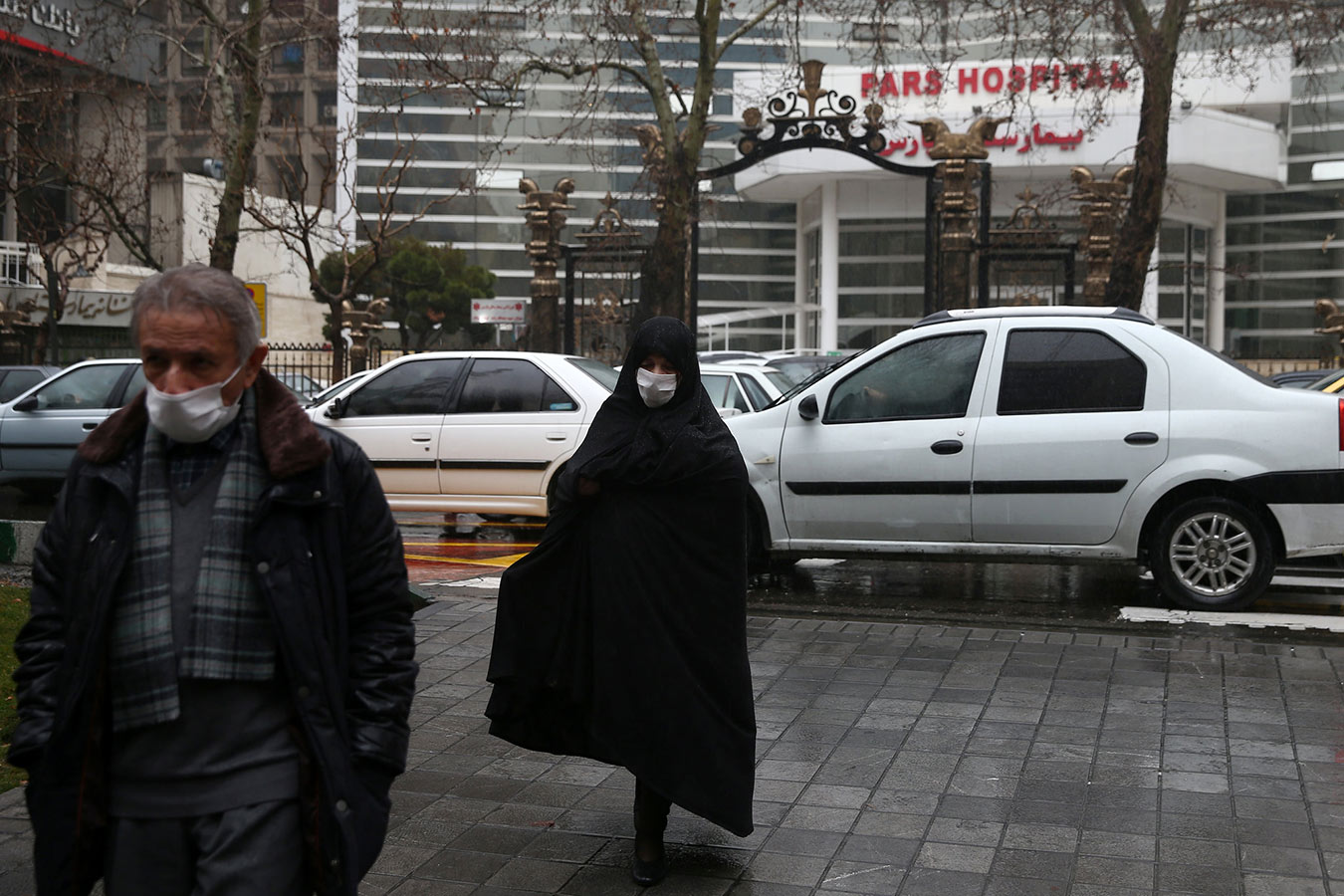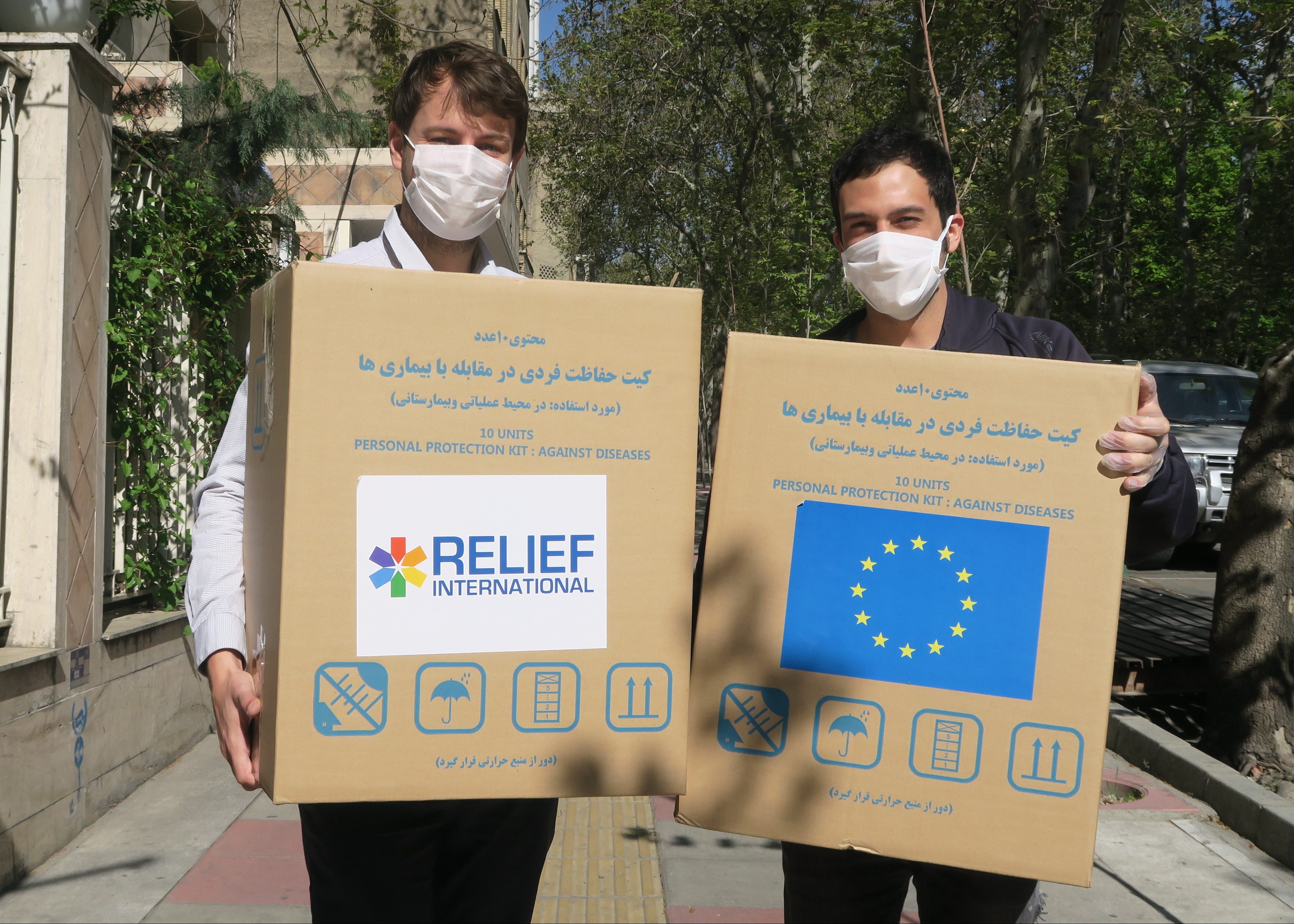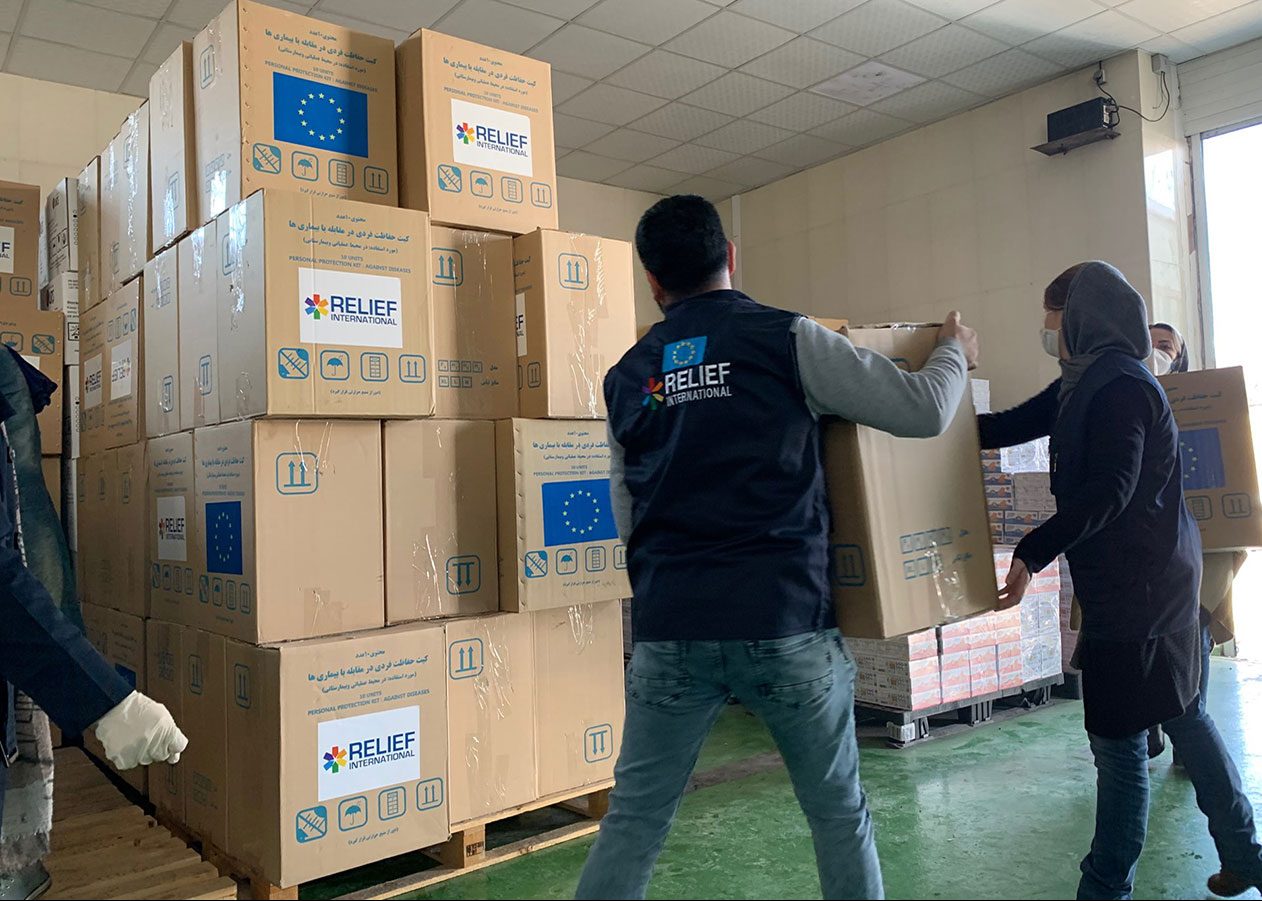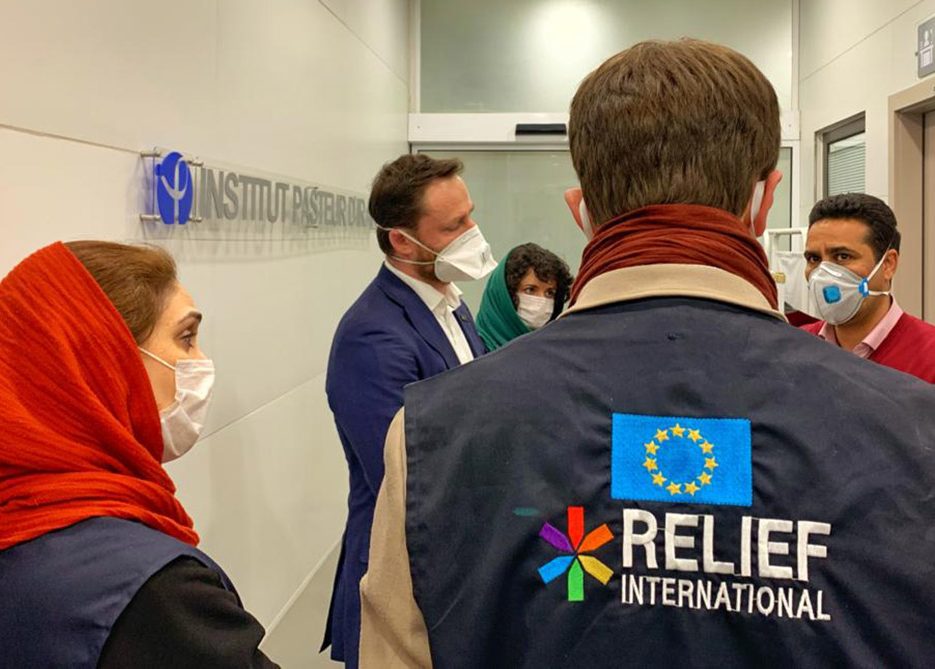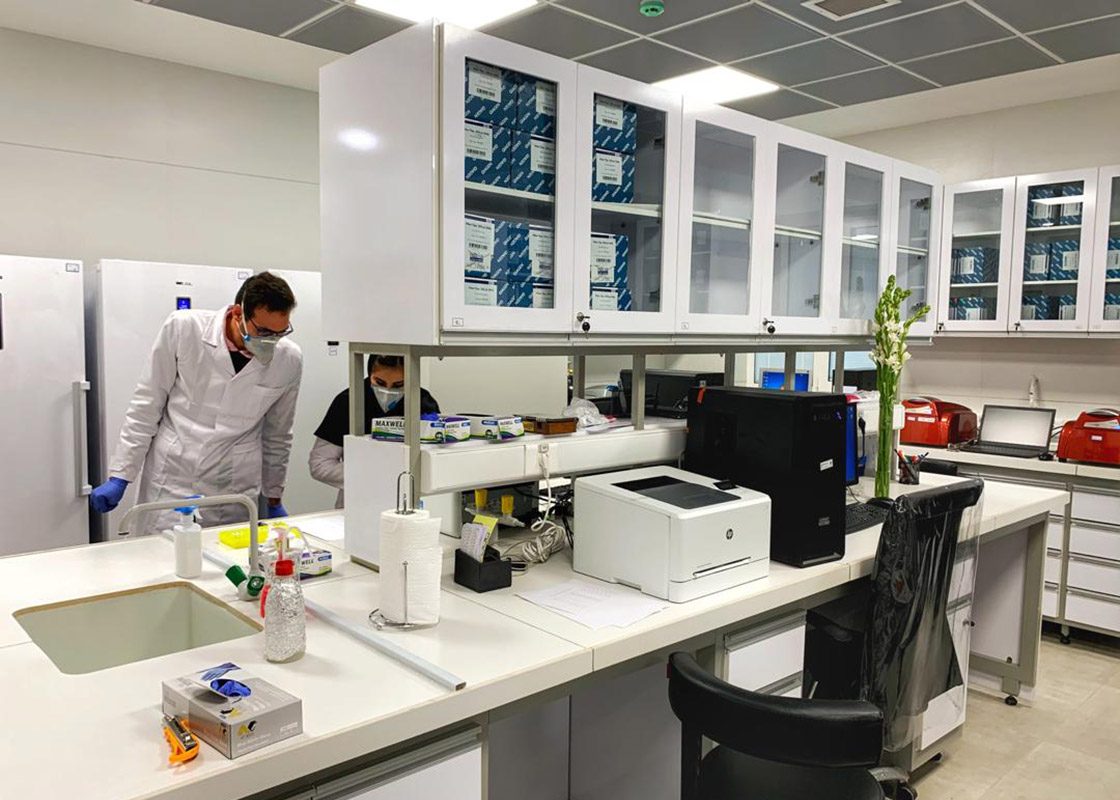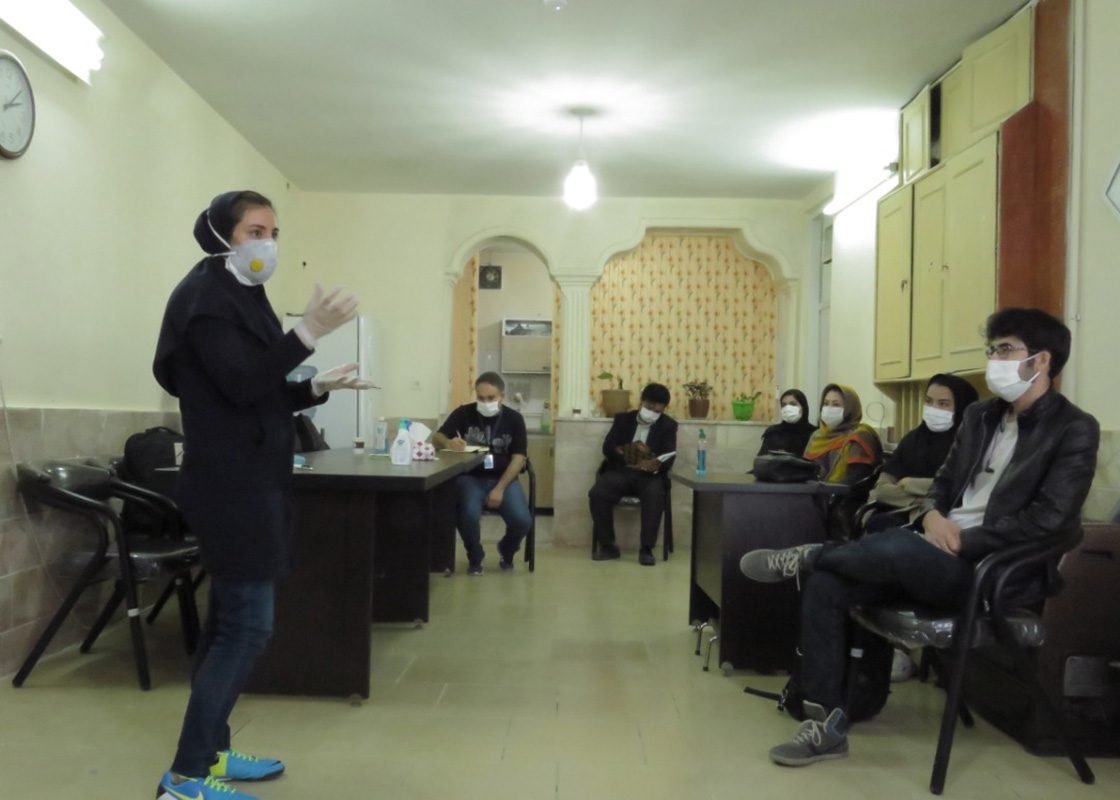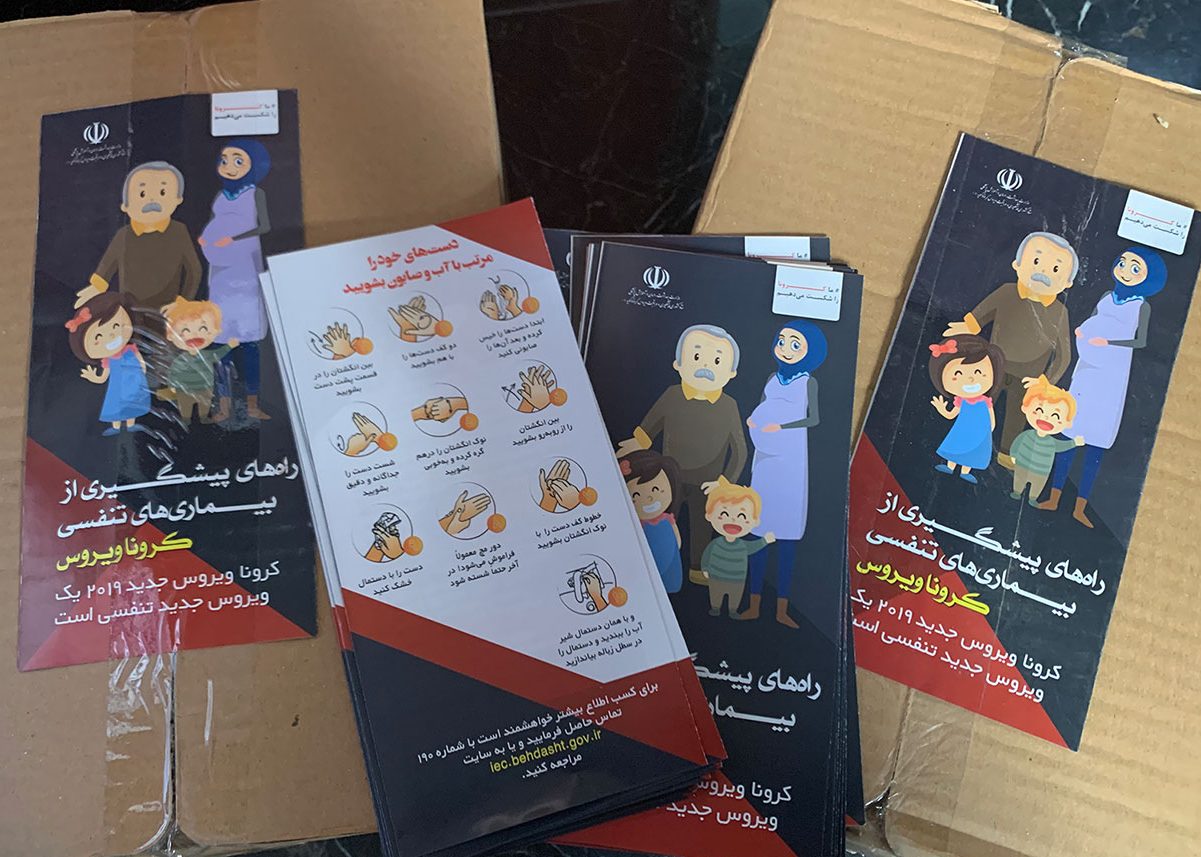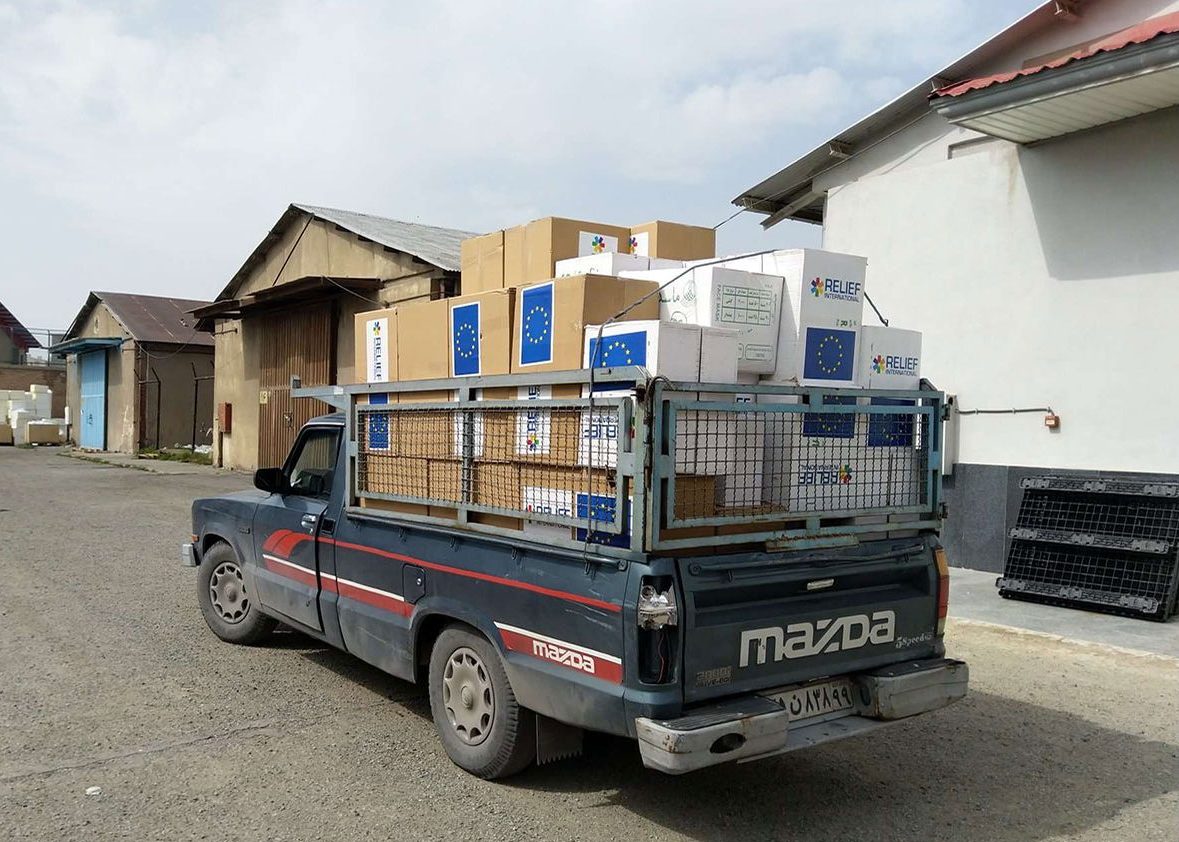On February 19, Iran reported its first case of COVID-19. Since then, the virus has spread quickly across the country, topping 80,000 confirmed cases and more than 5,000 deaths. In Iran, one person dies every ten minutes from the coronavirus.
“One of the problems for international aid has been to clarify the legal issues related to sanctions to ensure that medical supplies and medicines can be brought into Iran. This slowed down the health response in the first weeks of the outbreak,” shares Olivier Vandecasteele, Relief International’s Iran Country Director.
The need for such equipment is more urgent now than ever.
Relief International is uniquely positioned to respond by importing goods into the country through our expansive OFAC license for humanitarian purposes. Our teams are working non-stop to bring internationally-sourced medical protective supplies, diagnostic test kits, pharmaceuticals, and testing and medical equipment into the country amid a global shortage.
“My team and I are doing everything we can to ensure life-saving medical supplies and protective gear reaches hospitals and health facilities in outbreak hotspots across Iran,” continued Olivier. “Our focus is to protect frontline health workers who are putting their lives at risk to contain the spread of the virus. They need all our support.”
To-date, we have delivered 40,000 diagnostic test kits for the coronavirus to a leading laboratory in Tehran for immediate use in the capital and across the country. We have sourced 60,000 units of protective medical items from international sources, including 5,000 goggles, 35,000 masks, 25,000 pairs of latex gloves, 1,250 liters of hand sanitizer, and 14,500 full-body protective suits. More international procurement is in the pipeline, including an additional shipment of 20,000 N95 masks, and 294,000 tablets of medication to reduce symptoms of the virus. A large-scale shipment of laboratory materials is also being purchased to scale up testing capabilities in labs throughout the country.
All of the supplies meet World Health Organization standards, and Relief International teams are employing a rigorous monitoring system to track distributed goods and ensure they are protecting frontline health workers who are most at risk of contracting the virus and patients in the greatest need.
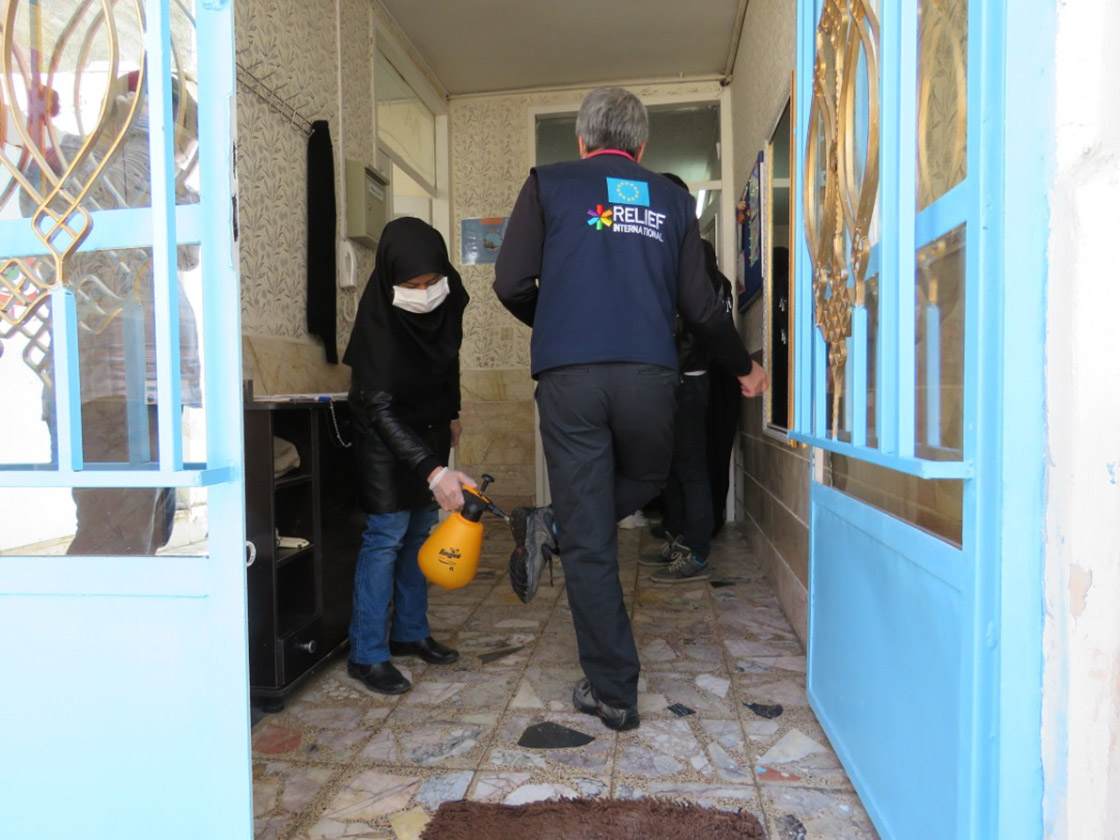
Relief International staff demonstrate proper personal hygiene to prevent the spread of the coronavirus.
© RI
Relief International is further expanding its response by putting cash directly into the hands of the families that are hit hardest by the pandemic. “We are working to identify 2,000 families in Tehran and Mashhad experiencing extreme food insecurity and who lack the income to purchase food or other basic supplies as a result of the pandemic to receive cash assistance,” explains Olivier. “These highly vulnerable families will also receive hygiene kits and vital information from our staff about how to protect themselves against the virus. After rolling out this program in these two cities, we plan to expand these services to families in other provinces.”
We are also training local volunteers to share accurate information about social distancing with one of the most at-risk groups in the country: Afghan refugees living in Iran’s crowded urban areas. In addition, we have printed 7,000 pamphlets, 300 posters, and 150 billboards and are working with partners including the United Nations Refugee Agency, known globally by its acronym UNHCR, to distribute them in these refugee settlements that are home to some of the three million Afghans in Iran, and in immigration offices countrywide that are a transit point for migrants. Using telecommunication, our health teams are training at-risk communities how to recognize symptoms and to protect themselves against the pandemic.
Go inside our work responding to COVID-19 in the world’s most fragile settings.
Frequently Asked Questions about Supporting Our Work in Iran
> Why give to Relief International?
Relief International works in the world’s most fragile settings. When emergencies like the coronavirus arise, your gift ensures that our teams are able to respond in real-time to save lives.
> How long has Relief International worked in Iran?
Relief International has worked in Iran uninterrupted for three decades through projects supporting the local Afghan population and responding to natural disasters.
> Can I donate to this relief effort given US sanctions against Iran?
Yes. Relief International is one of only a few international nonprofit organizations authorized by OFAC and the Iranian authorities to operate in Iran.
We have an OFAC license (License No. IA-2016-329134-4) for humanitarian purposes and we are able to accept tax-exempt donations from Americans and others to support our ongoing relief and development operations in Iran. To request a copy of Relief International’s OFAC license, please contact us at [email protected].
